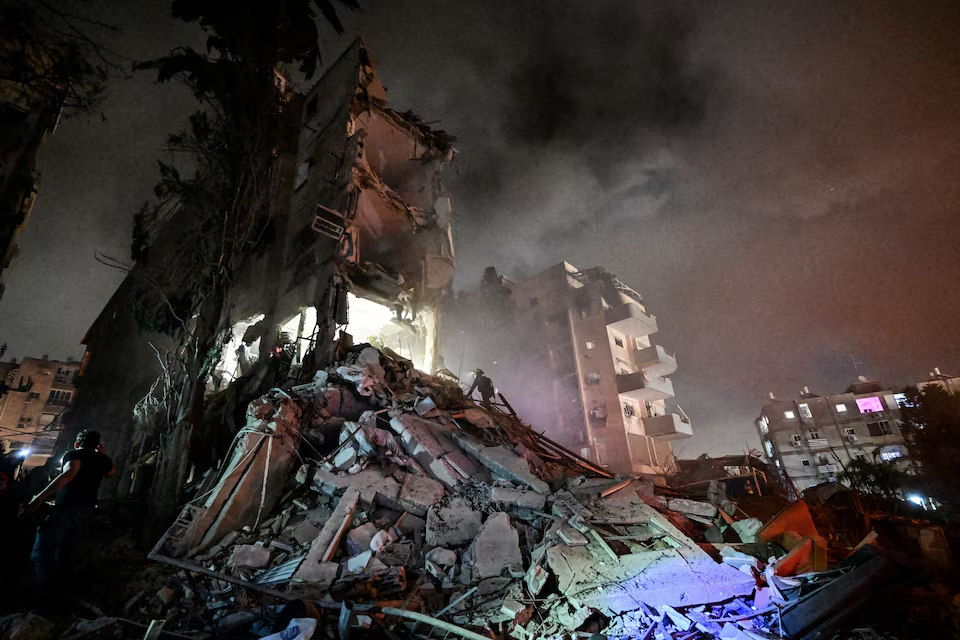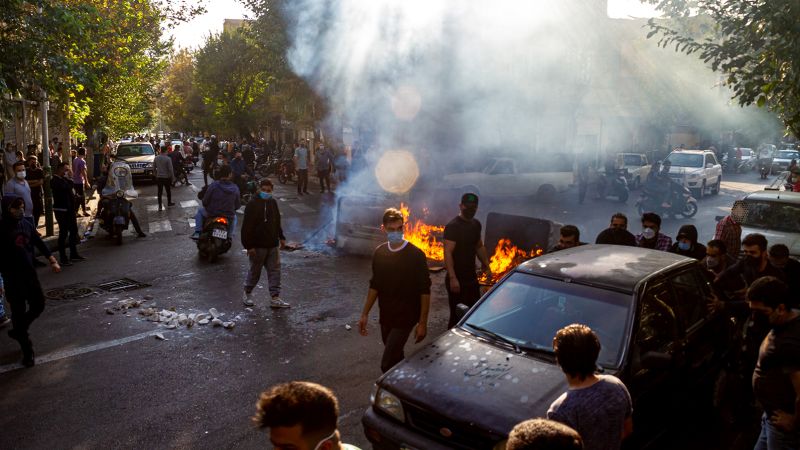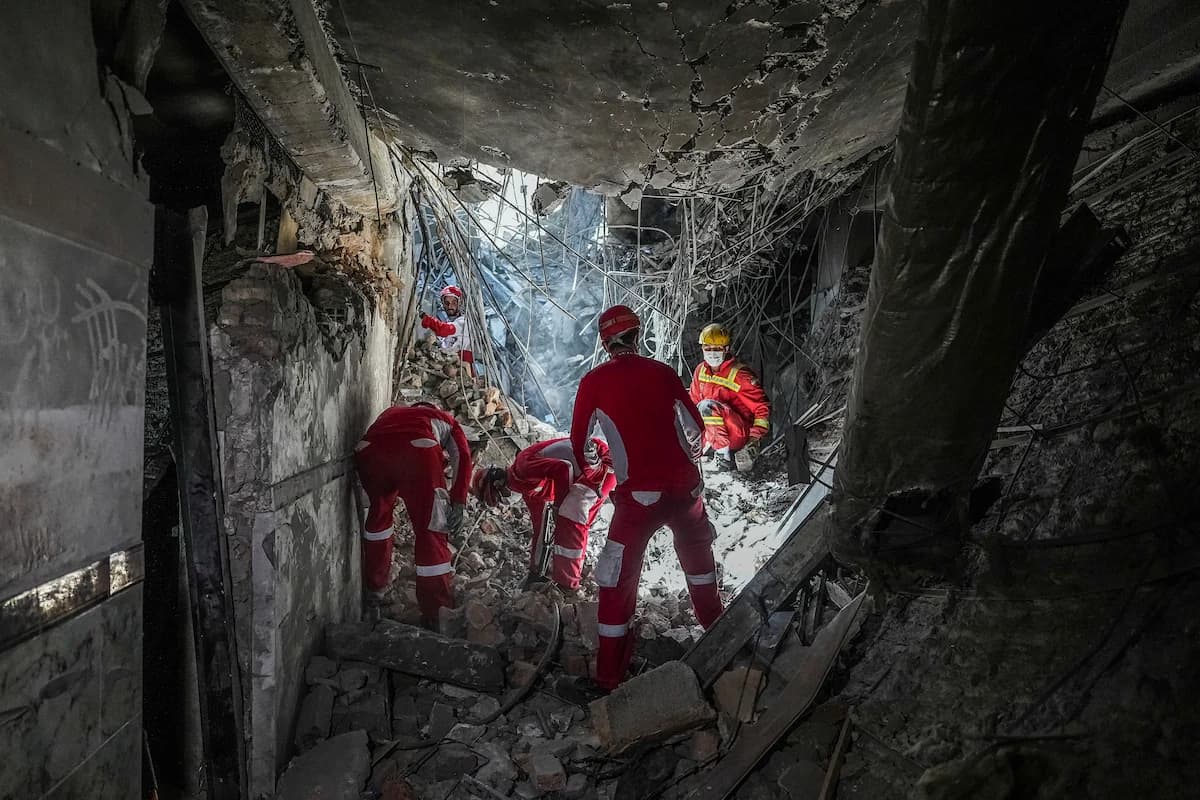On June 23, the world witnessed a devastating escalation in the ongoing Israel-Iran conflict with the missile strike on Evin Prison in Tehran, a site notorious for its history of human rights abuses and political repression. This attack resulted in the tragic loss of 79 lives, including family members visiting prisoners, healthcare workers, and even children, according to Iranian media reports and human rights organizations. The strike has raised urgent questions about the implications of military action on civilians and the ethical responsibilities of nations engaged in armed conflict.
Evin Prison as a Symbol of Oppression
Evin Prison is not just another detention facility; it is a powerful symbol of the Iranian regime"s brutal crackdown on dissent. Established in 1972, it has been the site of countless human rights violations, housing political prisoners and dissenters who oppose the authoritarian rule of the Islamic Republic. Reports from The New York Times detail the prison"s dark history, which includes torture and execution, creating an environment of fear and repression that has persisted for decades.
Casualties and Human Impact
The Israeli military"s airstrike not only targeted the prison"s infrastructure but also inflicted heavy civilian casualties. Among those killed were family visitors, social workers, lawyers, and even a 5-year-old child. This tragic loss of life highlights the collateral damage of military operations and brings into question the accountability of state actors in conflicts. The human cost of such military actions cannot be overstated, as so many innocent lives were caught in the crossfire. The situation calls for urgent international scrutiny and demands for accountability from those involved.
\n\n
Scenes from Israel and Iran as missiles fly - June 17, 2025 ...
International Response and Accountability
The airstrike has drawn widespread condemnation globally, even from factions within Iran that typically oppose the current regime. This rare moment of unity among dissenters against a common enemy raises critical discussions about the actions of foreign powers in conflicts that directly affect the lives of ordinary people. The international community faces pressure to respond not just to the act of aggression but also to the underlying issues of human rights abuses that have defined the Iranian state for decades.
Consequences for Regional Stability
This attack exacerbates an already volatile situation in the Middle East, where military confrontations often lead to broader conflicts. The destruction of Evin Prison serves as a stark reminder of the region"s precarious balance. As tensions escalate, the risk of further military actions increases, potentially leading to more civilian suffering. The need for diplomatic dialogue becomes increasingly urgent as military solutions continue to prove disastrous.
\n\n
At least 326 killed in Iran protests: human rights group IHRNGO | CNN
Calls for Reform and Justice
The airstrike on Evin Prison has reignited discussions surrounding the urgent need for criminal justice reform and police accountability within Iran. As the regime continues to suppress dissent, the voices of the oppressed must be amplified. Activists and human rights organizations are now calling for international attention on Iran"s human rights record, urging that the actions taken by the Iranian state be scrutinized while also holding foreign powers accountable for their military engagements.
The intersection of military action and human rights violations presents a complex landscape that requires a multifaceted response. Those advocating for justice must continue to push for systemic changes, not only within Iran but also in the policies of foreign governments that engage in military interventions. The devastating events of June 23 are a wake-up call, reminding us that the fight for justice and accountability is far from over, and the integrity of international human rights standards hangs in the balance.

![[Video] Anti-ICE Protester Pepper Sprayed as CBP Agents Disperse Crowd in Minneapolis](/_next/image?url=%2Fapi%2Fimage%2Fthumbnails%2Fthumbnail-1768260677127-y71sb7-thumbnail.jpg&w=3840&q=75)

![[Video] Several injured as U-Haul truck drives through Iranian protestors in Los Angeles](/_next/image?url=%2Fapi%2Fimage%2Fthumbnails%2Fthumbnail-1768176682028-q95y6j-thumbnail.jpg&w=3840&q=75)
![[Video] Scuffle breaks out between Trump supporters and Anti-ICE protesters in Times Square](/_next/image?url=%2Fapi%2Fimage%2Fthumbnails%2Fthumbnail-1768165958203-hgcgb-thumbnail.jpg&w=3840&q=75)


![[Video] Gunfire between Iraqi security forces and Sadr militias in Baghdad](/_next/image?url=%2Fapi%2Fimage%2Fthumbnails%2Fthumbnail-1768343508874-4redb-thumbnail.jpg&w=3840&q=75)
